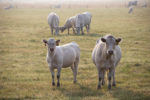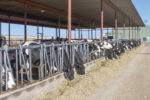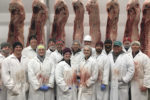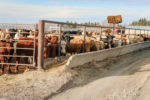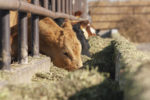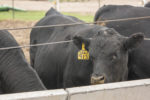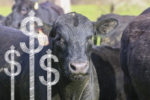Articles Tagged with ''feed efficiency''
Management practices such as spreading out nitrogen applications, irrigation and seed selection for low prussic acid can all reduce risk.
Read More
The importance of measuring feed efficiency in bred heifers
Measuring and understanding feed efficiency of feedlot steers has long been an indicator of profitability. But the female side of the equation may have just as much to do with ensuring a successful future of the beef cattle industry.
Read More
Efficiency in growing and finishing beef cattle
Every producer is looking for the next edge in efficiency. But are the formulas the industry has relied on for so long the best math for every operation?
Read More
Feed efficiency and sustainability pivot on carbon management
Residual feed intake helps identify a measure of feed efficiency. The ration is balanced to animals in certain stages of lactation and determines how cows fed the diet should produce at a certain level.
Read More
The decision to implant cattle lies in how they are marketed
Research suggests that growth-promoting implants are the best option for cattle sold on the live basis. However, if you plan to sell on the grid, non-hormone-treated cattle (NHTC) can return more to your pocketbook.
Read More
4 ways to optimize efficiency on feedlots
Consistently reevaluating equipment, feed systems, and cattle condition and stress levels is key to maintaining efficiency on a feedlot.
Read More
Cost of gain vs. cost per ton
When profit margins get tight, slashing feed costs is often a producer’s first instinct. But that may ultimately end up costing more than an investment in quality feed.
Read More
Corn processing methods and distillers grains in finishing diets
With corn and distillers grains constituting such a large portion of finishing diets, it is important for producers to understand how these resources impact cattle performance.
Read More
Do savings always equate to profitability?
With high input costs, some producers may be looking for ways to cut feed expenses. However, this decision can sometimes decrease income by negatively affecting health or animal performance.
Read More
What keeps the 'easy-keepers'
The science behind those livestock animals that maintain themselves easily, and those that don’t, may be more than residual feed intake. Efficiency could also be tied to the levels of brown fat maintained in a life cycle.
Read More
